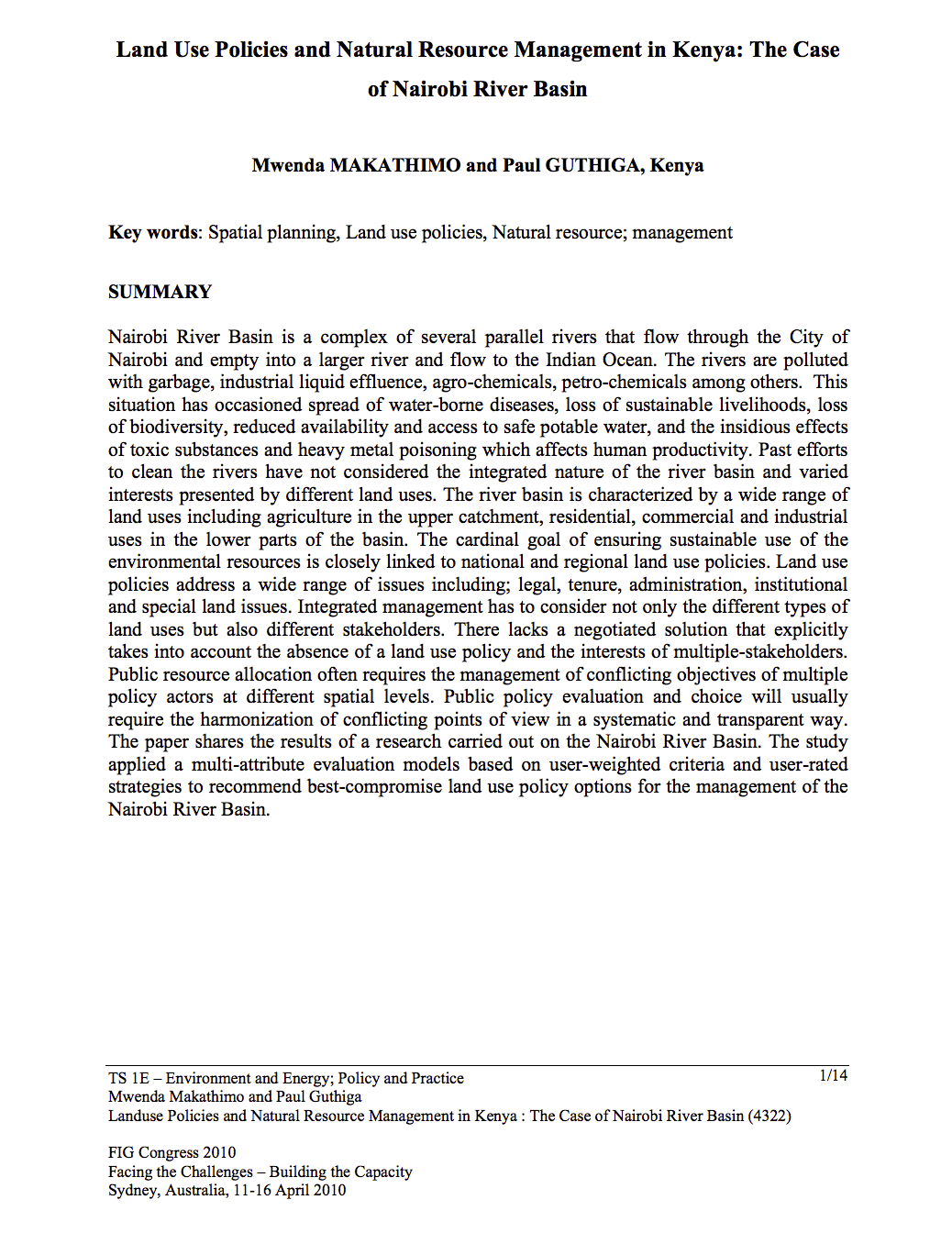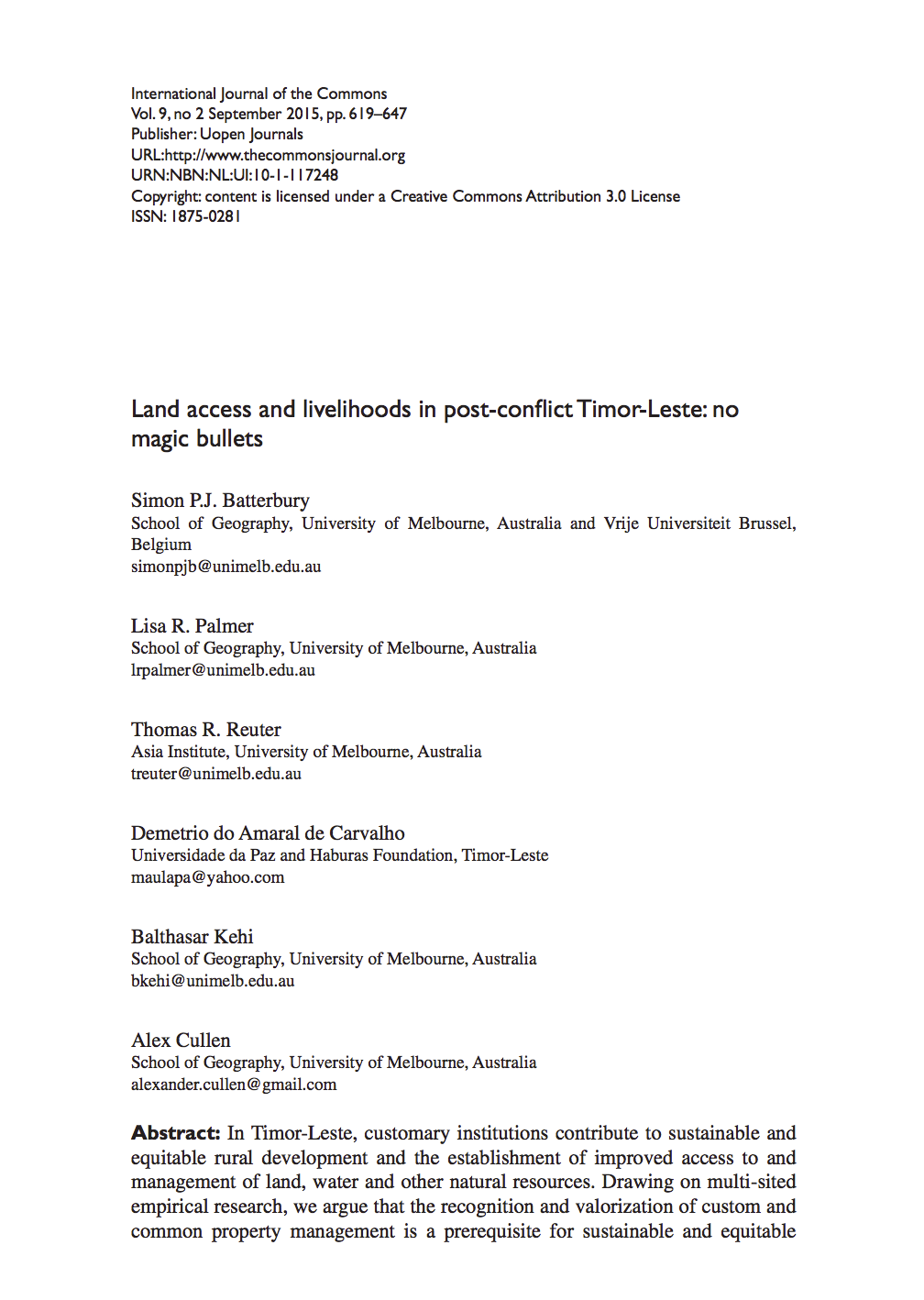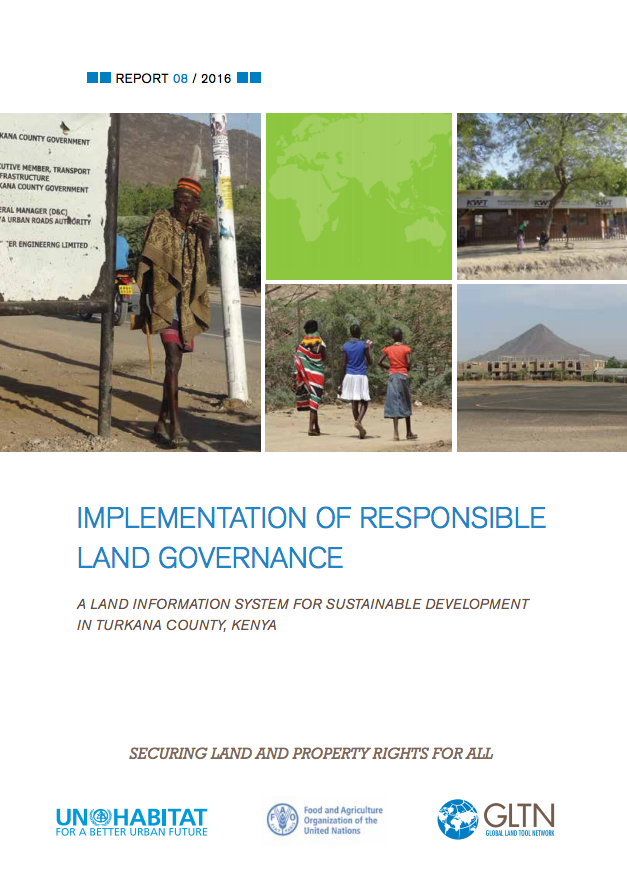Cadastral Systems and their Impact on Land Administration in Kenya
The mandate of the Kenya Government in its objective to achieve sustainable development is to reduce poverty by half by 2015 and transform the country into a newly industrailized nation by the year 2020. This paper reviews the cadastral systems that have been formulated and implemented in Kenya ; the different concepts and techniques used in the preparation of cadastral survey plans and maps; and the impact of the cadastre as a source of spatial data in support of land administration processes.




